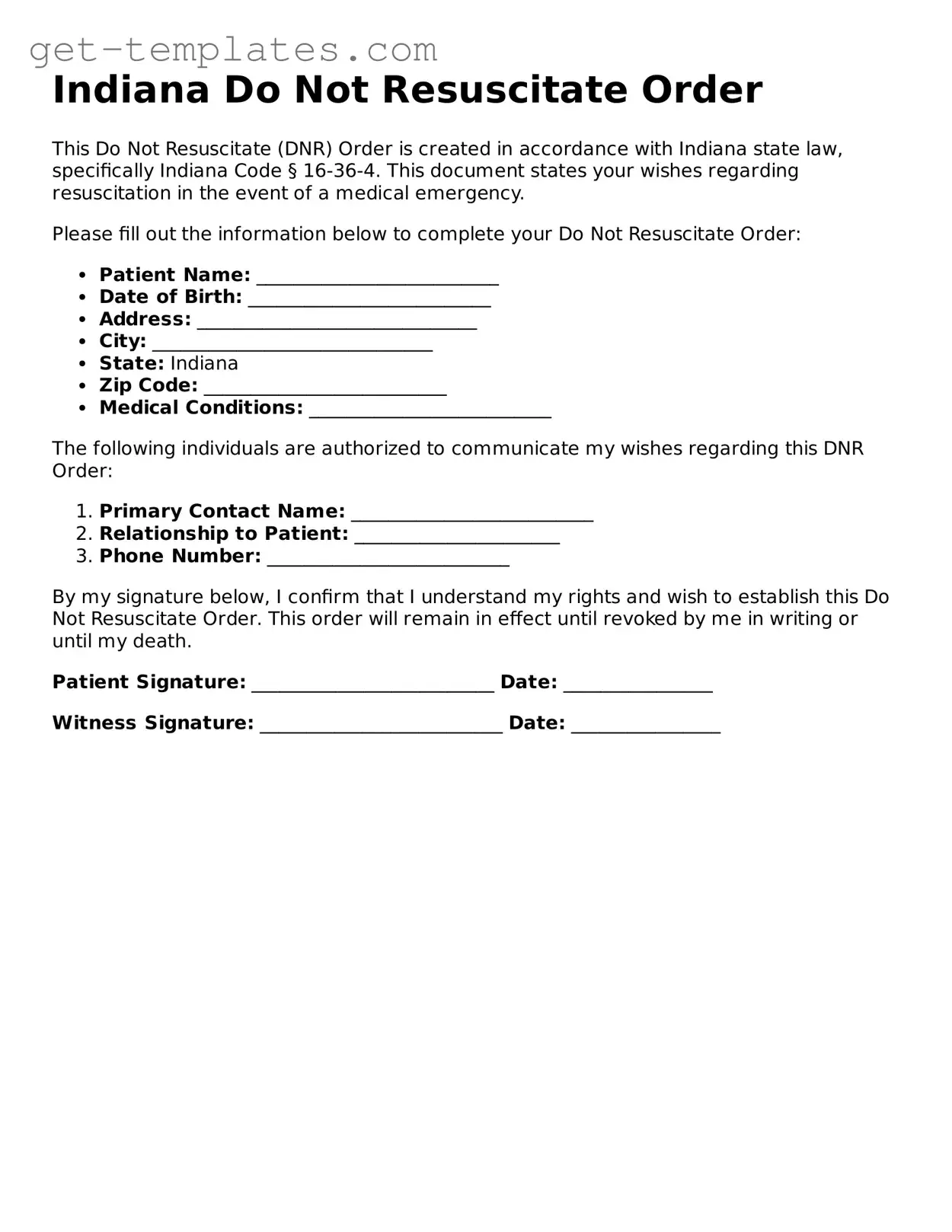What is a Do Not Resuscitate (DNR) Order in Indiana?
A Do Not Resuscitate Order is a legal document that allows a person to refuse resuscitation efforts in the event of cardiac arrest or respiratory failure. In Indiana, this order is recognized by medical professionals and ensures that a person's wishes regarding end-of-life care are respected. It is important for individuals to communicate their preferences clearly to their healthcare providers and family members.
Who can request a DNR Order in Indiana?
In Indiana, a DNR Order can be requested by an adult individual who is capable of making their own medical decisions. Additionally, if the individual is unable to make decisions due to incapacity, a legally authorized representative, such as a spouse, adult child, or designated healthcare proxy, can initiate the request.
To obtain a DNR Order form in Indiana, you can visit the Indiana State Department of Health's website or consult with your healthcare provider. The form is typically available in hospitals, clinics, and hospice organizations. It is essential to ensure that the form is completed accurately and signed by the appropriate parties to be valid.
The DNR Order form generally requires the following information:
-
The patient's name and date of birth.
-
The name of the physician or healthcare provider completing the form.
-
The patient's signature or the signature of a legally authorized representative.
-
The date the order is signed.
Additional details may also be included, such as the patient's medical history or specific preferences regarding other types of medical interventions.
Is a DNR Order valid in all healthcare settings?
Yes, a properly completed and signed DNR Order is valid across various healthcare settings in Indiana, including hospitals, nursing homes, and at home. However, it is crucial to ensure that the order is readily accessible to medical personnel in case of an emergency. It is advisable to keep a copy of the DNR Order in a visible location and to inform family members and caregivers about its existence.
Can a DNR Order be revoked or changed?
Yes, a DNR Order can be revoked or changed at any time by the individual who signed it. To revoke the order, the individual should inform their healthcare provider and any relevant family members. It is also recommended to destroy any copies of the previous DNR Order and to complete a new order if changes are made to the individual's wishes.
What should I discuss with my healthcare provider before completing a DNR Order?
Before completing a DNR Order, it is essential to have an open and honest discussion with your healthcare provider about your medical condition, prognosis, and treatment options. Consider discussing the following:
-
Your understanding of the DNR Order and its implications.
-
Your values and preferences regarding end-of-life care.
-
Alternative treatment options that may be available.
-
Any concerns or questions you may have about the process.
These conversations can help ensure that your wishes are clearly understood and respected.

